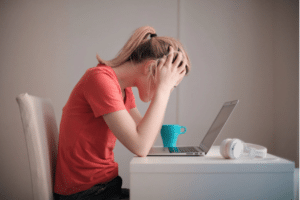 Does anyone remember what the country felt like following 9/11? Can you recall the sense of vulnerability and fear the events of that day left with us? Now, our country, and the whole world, finds itself immersed in a crisis that, in many ways, seems more profound and frightful. We are living through a pandemic that has changed our entire way of life and may do so well into the future.
Does anyone remember what the country felt like following 9/11? Can you recall the sense of vulnerability and fear the events of that day left with us? Now, our country, and the whole world, finds itself immersed in a crisis that, in many ways, seems more profound and frightful. We are living through a pandemic that has changed our entire way of life and may do so well into the future.
We face a foe too tiny to see and too powerful to ignore. In that sense, as Martin Luther King remarked, we are all in the same boat together. Yet, in very many cases, it seems as if there are no oars with which to row our boat, that we cannot cure this menace and, because we are human, we may experience profound fear, stress, and pain, and perhaps a sense of powerlessness.
The special people that confront this adversary directly every day carry only thermometers and stethoscopes plus a commitment to heal. The reader of this piece might himself or herself to be one of that army of caregivers upon whom the rest of us rely for help. We other souls can acknowledge the innumerable personnel who deal directly with the coronavirus, yet they may feel alone in their struggle, reticent to show their need for care themselves. Often, the culture where people work inhibits talking about personal experiences. Some individuals grow up in families where feelings were never discussed, and thus they, by habit, avoid talking about themselves, their fears, and the thoughts and images that go with those fears. Nonetheless, the caregivers can recognize their need to be cared for.
How would someone know when she or he might need to speak to a professional about how this current pandemic has affected him or her? First of all, if you have first-hand experience treating persons critically ill with the coronavirus, especially if you have treated people for it under the intense conditions found in our hospitals right now, or you are one the folks out in our community responding to calls by sick people for help, you should consider the possibility that you are developing acute stress. This group includes doctors, nurses, orderlies, respiratory therapists, emergency medical technicians, and family members of anyone who contracted the disease, especially if that person required hospitalization. It also includes firefighters, emergency medical technicians, and police officers.
People with acute stress often begin to notice feeling numb or frozen. It may seem as if they have no power: they cannot run or hide and yet must, day after day, go and face the many obstacles to treating patients diagnosed with COVID-19. Things around them could begin to seem unreal or strangely distant, or they may have significant trouble remembering important details. They may also acquire intrusive and recurring thoughts or images about their experiences that are especially distressing to them.
Nightmares can develop as well. While unsettling dreams appear to have become more common in general since the beginning of social distancing and isolation, these dreams may seem particularly upsetting to someone who has developed acute stress. Their nightmares may look like the awful moments they live while awake. An individual may also have difficulty sleeping; some clients say they avoid falling asleep for fear of having a nightmare but others unconsciously carry a tension in their body that makes sleep difficult.
Of special note, if someone finds that they avoid other people, avoid talking about their stress in general, or get very angry at small irritants, they must ask themselves if professional help would be useful. Included in this avoidant behavior might be increased use of alcohol or other drugs, especially if this reaches a point where it interferes with their relationships or daily lives.
People sometimes believe that having these symptoms means that they are “weak.” In cases such as we live in now, there is no “strong” or “weak,” only being human. To the contrary, those people giving of themselves so freely and finding themselves so over-stressed only means that they have been open and caring in their consideration of other people. This very positive trait is most necessary in times such as we all are experiencing now. It carries a cost to us, however, that we do not want to ignore.
While no one likes to accept that they need help, especially if they have been the helper to others, we all need to remember that caring for ourselves must be a priority if we also care for persons who depend on us. We can see in these days that wishing it were not so does not make the anxiety go away. Sharing it does, however.
Right now, you can make contact with a professional in this practice or elsewhere and begin to talk about how you believe this pandemic is affecting you. For the moment, that means talking to someone by means of an online video link; later, you can continue treatment through in-person meetings with a therapist.
Again, keep in mind the shared experience of fifteen years ago when another invader attacked our country. We weathered that together, and, with each other’s help, we shall weather this intruder as well. Reach out to each other; listen to each other. Seek help, medical or psychological, when you suspect you need it.
Keep the faith!
Bernard J. Bonner, Ph.D.